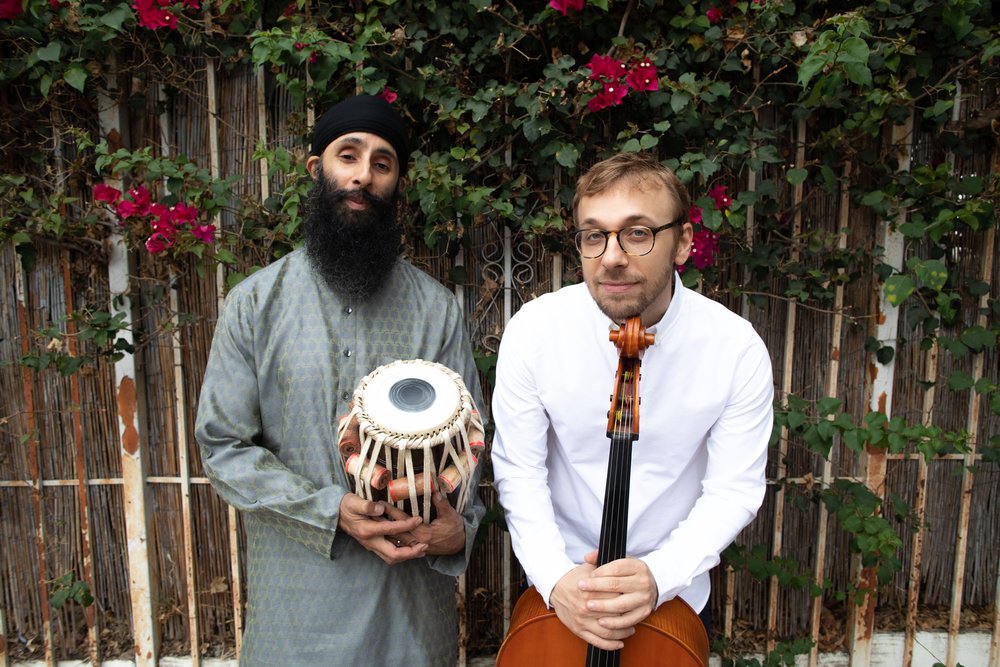
Though one could cite composers like Mozart and Beethoven having imitated the exotic ethnic music of Turkey and the late nineteenth century fascination with “orientalism”, the actual study of ethnic and non-western musical traditions probably started in earnest with the folk song collecting done by Bela Bartok and Zoltan Kodaly in eastern Europe and similar work by Charles Seeger and the Lomaxes in the United States. The work of Colin McPhee then took the study of ethnic musical traditions into the academic realm. But, for this listener, it was the Yehudi Menuhin collaborations with Ravi Shankar and Alla Rakha that brought non-western musical systems to the public in a big way via the LP record. Hindustani music and dance did not even get any representation in film until Satyajit Ray’s 1958 masterpiece, “The Music Room”.
And since Hindustani music has traditions going back hundreds of years among diverse practitioners in a large geographic area, it is not surprising that there are traditions and styles that reflect such diversity and that western musicians continue to explore and learn the varieties and subtleties of practices. This album is certainly a fine example of Mr. Votek’s mastery of the vocal tradition of Gayaki-Ang which is another of the rich traditions of the vast practice of Hindustani and Carnatic musical practices. What I’m ultimately saying now is that the familiarity with those great Menuhin/Shankar recordings affords the listener but a “tip of the iceberg” perspective of the depth of the traditions and practices of Hindustani/Carnatic music. Chris Votek is a part of a new generation of artists who are breathing fresh life into these practices and incorporating them in their own compositional and performance practices. And therein lies the significance of this release.

So now, on to the music. The album begins with a work for string quintet, in this case a string quartet with a second cello. While this will necessarily invoke comparisons to the classical string quintet repertoire such as Mozart and Schubert this composition both pays homage to the classical tradition and infuses it with the composer’s take on diverse musical worlds which reach far back into musical history. He takes medieval melodies and harmonies incorporating these into a work in three distinct movements titled, “Serpents”, “Fossil Dance”, and “Migration of the Fires”. Each of the movements has its own character as the composer finds ways to work with this material.
Whether you choose to experience this as three separate pieces or, as this writer does, as a single work, this is the composer working with old western music incorporating it into a work for a String Quintet titled, “Memories of a Shadow”. It works as individual movements but, as a unified whole it represents a stage of Votek’s compositional development with this material. And while his encounters with Hindustani music is not explicit here, it is undoubtedly a part of his compositional thought as well.
The result is a gentle three movement String Quintet that could be programmed alongside Schubert’s essay in the medium. It is, of course, stylistically different from Schubert but the instrumentation is the same and it provides a contrast to Schubert’s work from 200 years earlier. Add to that the incorporation of medieval music (in Votek’s work) and you get some delightful contrasts indeed. It is a work that shows its charms more clearly with each hearing and is a substantial addition to the repertory regardless of what else shares the program.

Track 4 is dedicated to the performance of a single piece, a traditional raga played in a Hindustani vocal style called, “Gayaki-Ang”. Accompanied by tabla player Neelamjit Dhillon, Votek performs on his cello the vocal part of this raga. This evokes for this writer memories of the late Arthur Russel whose vocalizations along with his cello playing had roots, at least peripherally, in a similar sound space. This is a traditional raga, a tradition that extends back hundreds of years to a sound world that paralleled but did not interact with western music of the medieval era heard in the earlier work. Happily, the interaction begun between early western collaborators with Hindustani musicians such as Menuhin and Shankar continues here most joyfully to explore the splendorous riches of that tradition.
While this is first disc dedicated exclusively to his own work listeners will want to peruse his collaborations listed on this well organized web site. He is an artist that is poised to create some thoughtful new music. This CD can be obtained via Microfest Records as well as other outlets.